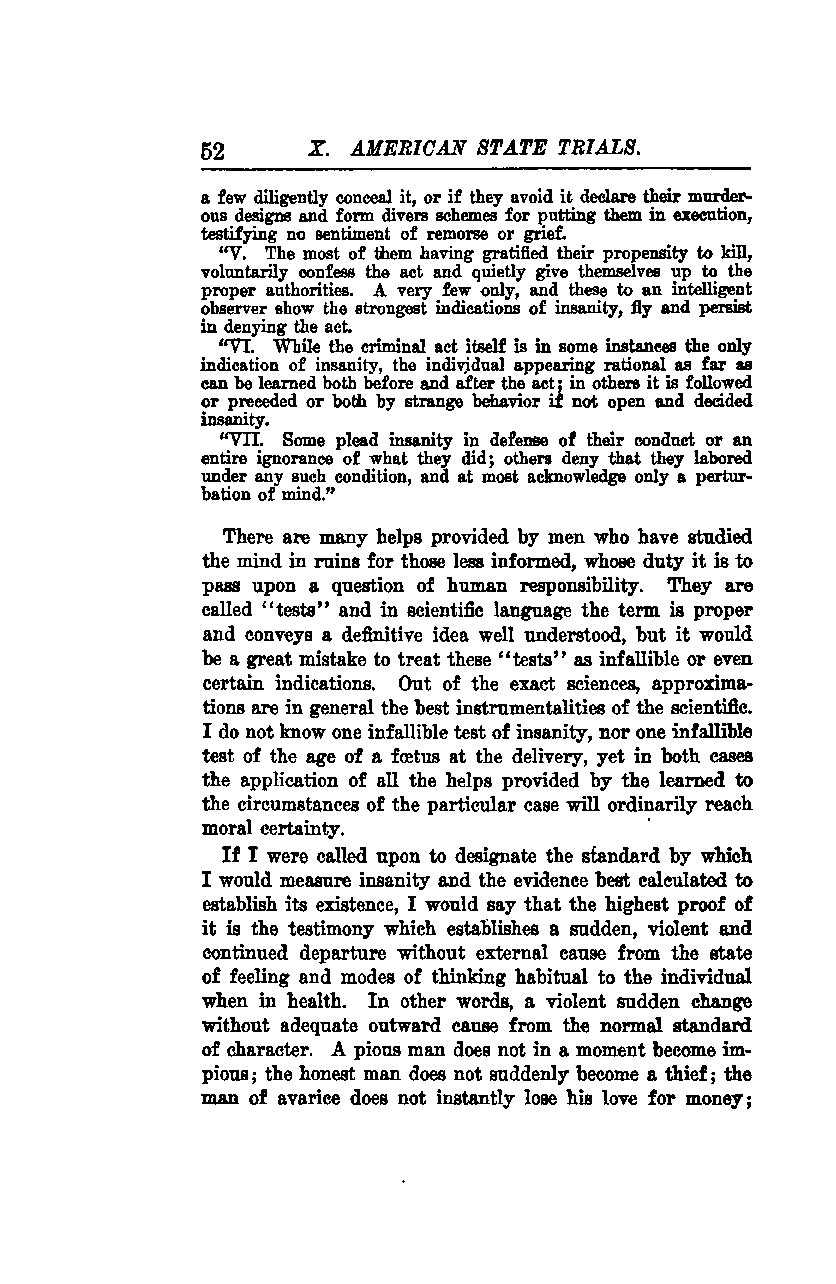
Here is the translated text as follows:
52 X. AMERICAN STATE TRIALS.
A few diligently conceal it, or if they avoid it, declare their murderous designs and form diverse schemes for putting them in execution, testifying no sentiment of remorse.
The most of them, having gratified their propensity to kill, voluntarily confess the act and quietly give themselves up to the proper authorities. A very few only, and these to an intelligent observer, show the strongest indications of insanity, fly, and persist in denying the act.
While the criminal act itself is in some instances the only indication of insanity, the individual appearing rational as far as can be learned both before and after the act; in others, it is followed or preceded or both by strange behavior, if not open and decided insanity.
Some plead insanity in defense of their conduct or an entire ignorance of what they did; others deny that they labored under any such condition, and at most acknowledge only a perturbation of mind.
There are many helps provided by men who have studied the mind in ruins for those less informed, whose duty it is to pass upon a question of human responsibility. They are called "tests," and in scientific language, the term is proper and conveys a definitive idea well understood, but it would be a great mistake to treat these "tests" as infallible or even certain indications. Out of the exact sciences, approximations are in general the best instrumentalities of the scientific. I do not know one infallible test of insanity, nor one infallible test of the age of a fetus at delivery, yet in both cases, the application of all the helps provided by the learned to the circumstances of the particular case will ordinarily reach moral certainty.
If I were called upon to designate the standard by which I would measure insanity and the evidence best calculated to establish its existence, I would say that the highest proof of it is the testimony which establishes a sudden, violent, and continued departure without external cause from the state of feeling and modes of thinking habitual to the individual when in health. In other words, a violent, sudden change without adequate outward cause from the normal standard of character. A pious man does not in a moment become impious; the honest man does not suddenly become a thief; the man of avarice does not instantly lose his love for money.